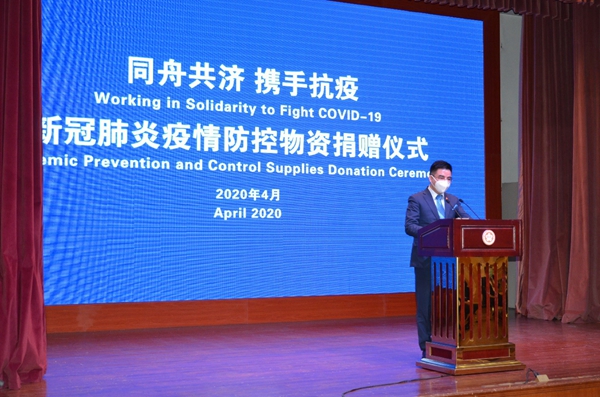Extending a helping hand


Malaysian Ambassador to China, Raja Dato' Nushirwan Zainal Abidin, says Malaysia has seen a leveling-off of cases after weeks of travel restrictions. With vaccines and special medicines yet to be developed, cutting off the transmission chain is the only effective way of coping with the spread.
Eight medical experts on clinical medicine, TCM, mental health and public health from South China's Guangdong province arrived in Malaysia on April 18.
"The team from Guangdong are very familiar with the Malaysian situation, as we are with the situation back in their home," the ambassador says, noting that the team would mainly focus on measures the country can take at the macro level and at its hospitals.
"We are very keen to know more about the lessons learned by China, both the positive and the negative," he says, adding that, as China was the first country to experience the outbreak and was also the first to bring it under control, it's a very important initiative to share the experience.
"It's no use blaming people now. The most important thing is to work closely together," he says, calling for an emphasis on the importance of cooperation so that the two countries can pool their knowledge together.
Former foreign minister Li Zhaoxing says only by working in solidarity can people around the world overcome the pandemic.
Lin, who returned from South Africa at the end of March after two years' working in the country, says he keeps in mind the unique resources brought, and roles played, by civil diplomacy, especially under the framework of friendship countries and cities.
The more than 2,700 pairs of friendship cities have been sharing their experiences and supporting each other with material supplies, drawn from donations made by enterprises and the people, in a pragmatic and efficient way, and still offers a great potential, he says.




































